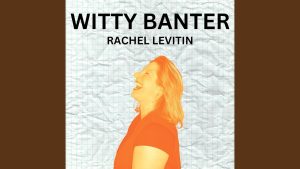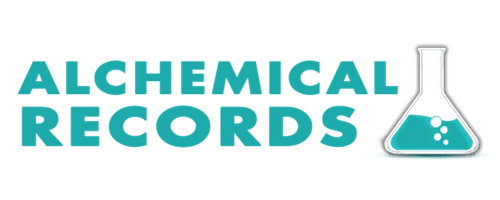
By Cynthia Gross
This Alchemical Records article is read by the author to provide a multimedia experience for our audience while increasing the accessibility of our content to persons with hearing loss, low vision, dyslexia, physical or motor disabilities, or are on the autism spectrum.
D.C. soul artist Akua Allrich never intended to be a musician – and yet, she has proven herself to be an artist of extraordinary talent and crowd-moving passion. Often likened to legendary talents such as Oscar Brown, Jr., Miriam Makeba, and Nina Simone, Allrich has inspired countless artists throughout D.C. and across the world with her brilliant artistry and commitment to equity and justice. Learn more about Allrich’s journey with contributing writer Cynthia Gross, including her secret superpower, what identity means to her as a Black woman, her original career pathway, and a special commemorative project in the works that pays homage to her roots.
How long have you been part of the D.C. music scene? What gives you staying power?
A: I’ve been part of the D.C. music scene as a solo artist since 2008 when President Obama was inaugurated, so 13 years. In terms of staying power, I just do my best and follow my heart. My secret superpower is my family. They are my everything, and my children pull me back to earth and ground me. I’ll have a great show and come home, and my children are like, “What’s for dinner?” My husband is a huge support, as well as my mother, sister, and brother. I am a spiritual person. I believe if I wasn’t supposed to be doing this, I wouldn’t be. Every time I doubt, I get a confirmation with a huge gig or another big opportunity. I take a humble approach, being kind and professional. I’ve been blessed to come across some amazing people who are trying to bring light into the world – my Tribe, amazing musicians who continue to help me grow.
What do identity and belonging mean to you as a person of color?
A: Identity can mean so many things. My identity is tied to my upbringing, how my parents raised me. There are some undeniable things I was born with as a Black woman. To acknowledge and accept it is just as important as – I’ll liken it to how society deals with people’s bodies. The way society tries to sculpt image in an abusive way causes body dysmorphia, where you’re never okay with how God made you. My parents taught me I was perfect when I was born and that I’m part of a millennium of brilliance. Having this foundation as a child has everything to do with how you perceive yourself as an adult. If you don’t celebrate who you are, how can you move forward in a healthy way? My kids are teenagers. I hope I’m doing right by them so they can be solid, happy people. If you’re not happy with you, you cannot be happy with anyone else. Broken people break people.

If you weren’t a musician, what would your profession be and why?
A: I never intended to be a musician. When I was a little girl, I was supposed to become a doctor. My mom is a doctor, and I wanted to be one, too. I planned to pursue a career in maternal health and embryology. It didn’t work out. I tried for a while, then later, my mom said I should follow my heart. I didn’t really sing growing up. I didn’t grow up in the church. My dad was a jazz musician, and my godmother, who played with my dad, encouraged me. I was already in the vocal program at Howard University (I’m a second-generation HU grad), and I excelled. My parents were radical civil rights activists during their time at Howard, and my dad was instrumental in establishing the university’s jazz program. After I graduated, I said I wasn’t going to be that sad, lonely musician in a smoky club drinking bourbon. I got married, had my kids, and earned my master’s in social work with a focus on mental health, also from Howard. If I were not a musician, I would be in the education and mental health field.
How have you been coping with the lack of live performances during the pandemic?
A: This shutdown has been so difficult emotionally. A real blessing emotionally, as well, since it allowed me to be with my family in such an intimate way. It drove me nuts at times, but it also gave me an opportunity to see them grow and process, “Who are you again?” We have to pause and be present. I’m not sure if this experience will ever happen again in our lifetime. My dad just passed in 2019, so we are still grieving. The pandemic gave us a period of rest of not having to grieve in front of everyone.
At the same time, it hurt not being able to do what feeds my spirit, which is to perform and be communal. I definitely experienced some depression. And virtual gigs were not it. They’re like trying to pull magic out of nothing. I’m so used to the energy – even if there are only three or four people in the audience. I’m happy about the world opening back up but also a little scared. We got our vaccinations, but I feel like things opened up too fast. My family is just trying to be protective of each other, which is hard when everything you missed is now open.

How does your background in social work and mental health influence your art?
A: I think it gives me a place of empathy with the audience and with my band members. I grew up performing as a dancer, and I knew how I did not want to be treated. In social work, you formulate how you will engage with people based on research. My research gives me a different eye and sight. When working with an audience, I’m looking to connect with them. I pay attention to people other than myself. Social work taught me to pay attention, look, see, listen, and connect. I try not to be a selfish person when I perform. There’s a place for musing for yourself, but when you’re performing for folks, it’s not the time or place.
What’s something you believed earlier in your career that you think about differently now?
A: I’m in a different place now. When you’re young, you say, I want to reach this place and be here by this time. My goals have changed. I don’t need to be a “superstar” jazz musician. I do not need to be in the limelight. I’ve let go of that narrative someone else created, and I’m in a very comfortable place. Clearly, I would like to get paid more and work less, but awards and acknowledgement are not of utmost importance. Being fulfilled and understanding what my goals are is key. I have a more grown-up view on things – thinking about my family and my legacy. I’m not going to take every gig like I’m a spring chicken, and I don’t need to be bound by anyone. I make my own path, and that works for me. I love where I am and want to inspire others. This works for me and my family right now. As soon as it doesn’t, I’m deucing.
What projects are on the horizon for you?
A: I’m hesitantly rebuilding my Jazz Roads Tour that got canceled last year. I’m also working to reissue my father’s album, which is really cool and a little emotional. My heart and spirit are in the process of healing and changing, so I’m not pressuring myself to create new music because it’s not coming at the moment. I have a few upcoming gigs. On September 25, I’ll be performing with my creative partner in musical justice, Kris Funn. Our duo is called Idol Beings. We’ll be at the NEXTfest. I’ll also be in Virginia in November. I update my performance schedule on my website. I’m also on Facebook, Instagram, Twitter, Bandcamp, and more.

Cynthia Gross is a freelance writer and award-winning spiritual pop artist based in Maryland. With more than a decade of experience as an executive ghostwriter, she understands the power of each individual’s voice to create positive, meaningful change.

Recent Articles March 21st. A day that I will always think of amazing album releases. DC-based musician, producer, and singer-songwriter, Rachel Levitin, released Witty Banter

Alchemical Records is a Washington, D.C. based music publication. We cover the Washington, D.C., Baltimore and Richmond, VA metro area music scenes, including band interviews, articles about your favorite musicians, new music and concert dates.